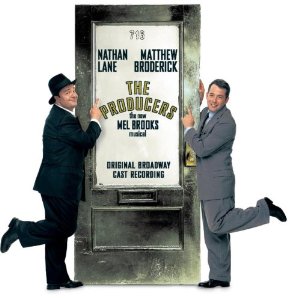
Lest we forget, last week's comments from the head of the NEA were brought to us by the man who introduced premium priced seats on Broadway.
If you follow any of the small business “gurus” out there, you will already know that they love overcrowded niches. In fact, these gurus often say that when researching an entrepreneurial idea, make sure that there are other companies servicing the same niche.
A niche with tons of business around serving it usually means that there is demand for what that niche supplies. If you are you are the lone wolf, there is a good chance that there is little to no demand for what you are serving.
So the fact that we have so many arts organizations to chose from does not mean that we reached some sort of supply/demand tipping point. That these organizations serve audiences at even 50% or 25% capacity means that there is clearly a demand for what they are offering. Does everything need to be a sell out to be a success? Does not having financial success at the box office mean that an organization is not serving the community?
Landesman’s background is in commercial theater. I doubt that he is remotely considering that a non-profit, large or small, exists to serve its community, not return money to its investors. That’s why it’s (duh) non-profit.
Further: why do decaying cities beg, borrow and steal to lure artists to set up shop in said dead communities? Because the creative influx often leads to a revitalization.
So an investment in the non-profit arts sector leads to rebuilding communities and/or a strengthening the communities that already exist. I scratch my head at why the leader of the NEA would want to tear non-profit arts organizations apart.
Further, to have the head of the National Endowment for the Arts say in a public forum that we essentially need to “trim the fat” of the non-profit theater world is terrible public relations. I certainly hope that this does not discourage private sector donations, which has become more and more necessary as the NEA lost its financial muscle muscle over the years.
Finally, in this economic crisis, I would argue that we need to encourage more nonprofit growth and entrepreneurship in the hope that it would lead to job creation. To encourage otherwise strikes me as kinda un-American.
